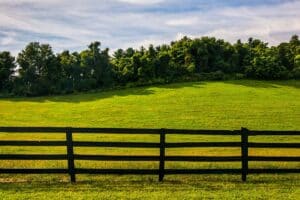Buying land is an exciting prospect. You get to think about what kind of place you want it to be, customize it how you want, and envision how it will be for you and your family for years to come. What if the seller accepts? What if they don’t? And what are the steps involved with making an offer on rural land in general?
What is an offer in real estate?
An offer to purchase is the first formal communication that leads to the final deal. It is a contract that lays out the foundation of terms both parties will be agreeing to. The purchase offer will serve as a blueprint for the final sale.
When making an offer to buy land, there is more to consider than just the price you will pay. One of the things to consider is earnest money, which can also be called the down payment. The second thing is to know when you have a legally binding contract. Let’s examine both below.
Earnest Money
It’s called earnest money for a reason – it’s your “skin in the game”, and it’s an indication of how much you are willing to risk should you fail to close on the contract. Without an earnest money deposit, buyers could easily make offers on multiple properties since they’d have nothing to lose by backing out of the deal.
Earnest money is not the same thing as a down payment. Earnest money shows the seller that you’re serious about the purchase, whereas a down payment shows the lender you’re serious about the purchase. That said, you can usually apply your earnest money deposit toward your down payment, so you don’t have to worry about saving up enough money for both.
Also, the more you are willing to pay as a down payment with your offer, the more likely a seller will negotiate with you on other issues (such as offer contingencies). Remember, the down payment is a credit towards the purchase price. So, assuming you intend to close (and you have well written contingencies) you are not really taking much risk. A large amount can (and usually will) get the seller’s attention and moving your way.
Once the purchase agreement has been signed, the seller’s real estate agent will place the earnest money in an escrow account until closing. This is because under certain circumstances your deposit is refundable. For instance, if the seller backs out of the deal, you will always get your earnest money back. Additionally, if contingencies that you write into your offer are not met, it will allow you to back out of the deal and keep your money.
When An Offer Becomes Binding
It is crucial to keep in mind that verbal agreements to sell real estate aren’t legally binding. To be legally enforceable, a contract to buy real estate must be in writing. Our brokerage has seen situations where a prospective buyer believed that by verbally accepting the price offered by a seller, the seller was legally obligated to close with them. The is not the case! Even if a seller verbally accepts your offer, they are free to accept a higher offer until your offer is binding legally.
Alabama real estate law stipulates that a contract is binding on the parties only after, 1) it is signed in writing by all parties (including initialing any changes made during counter offers), and 2) both parties have received copies that are fully signed and initialed. Also, remember that Alabama’s Statute Of Fraud requires all contracts to 1) be in writing, and 2) have ‘consideration’ (payment of money).
Once both parties sign the purchase offer agreement and after the brief celebration and sigh of relief, it’s time to begin the other steps that will lead you to closing day.
When making an offer to purchase rural land, don’t be afraid to lean on your real estate agent for help, since they’re your go-to throughout the offer process. Making an offer to purchase land is not something to be done casually. When you make an offer, you’re taking a substantial risk by making a deposit, so you need to know what you’re agreeing to. Work with an experienced real estate agent and an excellent lawyer to ensure your best interests come first.
This content may not be used or reproduced in any manner whatsoever, in part or in whole, without written permission of LANDTHINK. Use of this content without permission is a violation of federal copyright law. The articles, posts, comments, opinions and information provided by LANDTHINK are for informational and research purposes only and DOES NOT substitute or coincide with the advice of an attorney, accountant, real estate broker or any other licensed real estate professional. LANDTHINK strongly advises visitors and readers to seek their own professional guidance and advice related to buying, investing in or selling real estate.










Add Comment